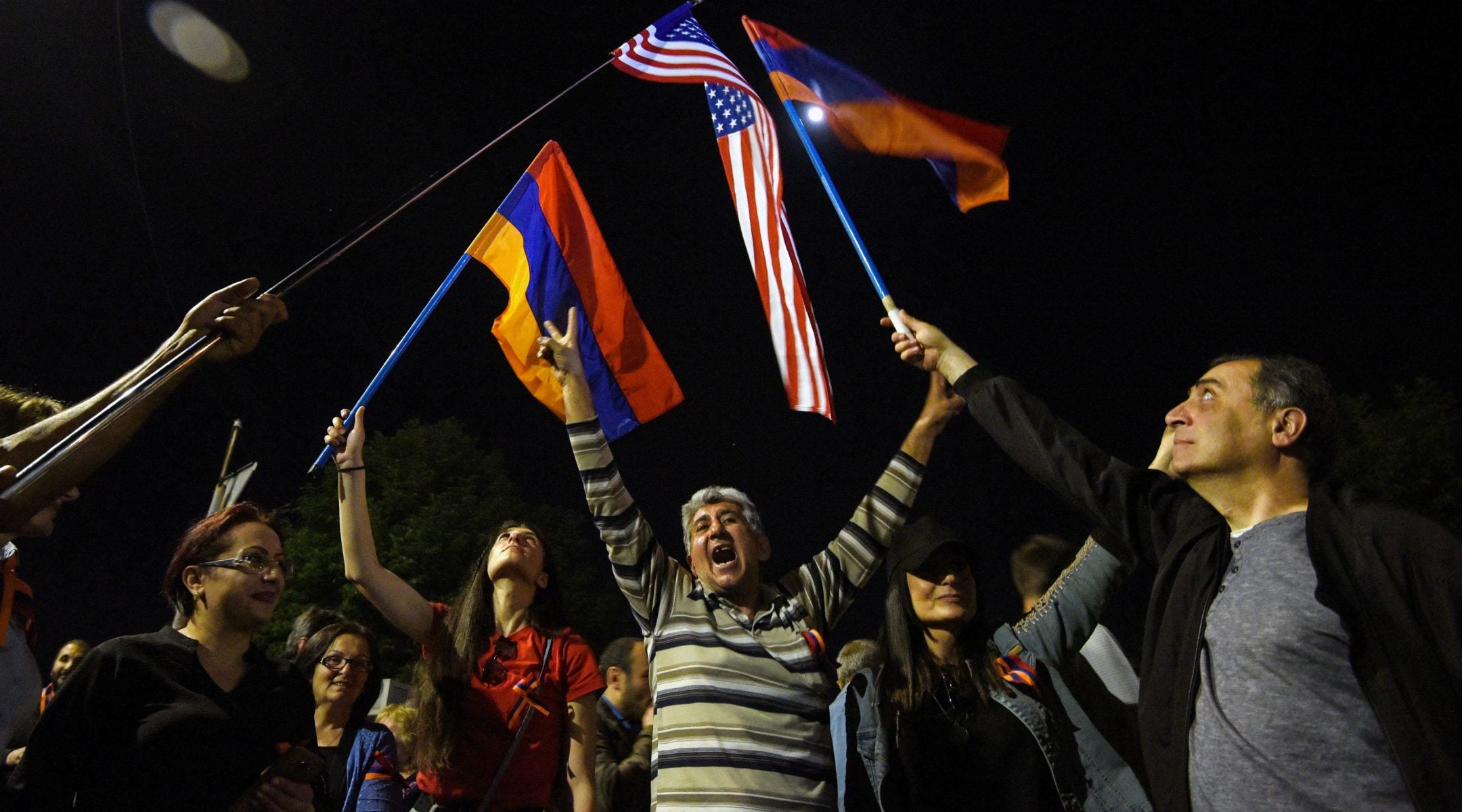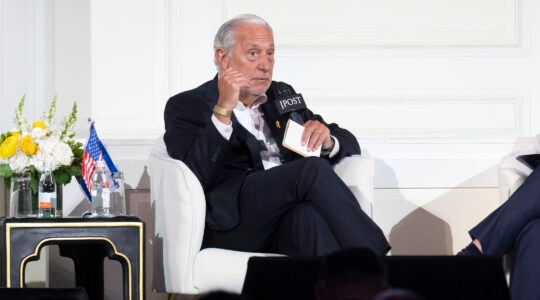WASHINGTON (JTA) — One Wednesday in October 2007, seven Jewish lawmakers on the House Foreign Affairs Committee did something extraordinary: They ignored the pleas of the Jewish establishment.
Jewish politicos were often happy to advance the the agenda of the Jewish groups because it lined up with their ideals.
On this occasion, several powerhouse lobbying groups in the Jewish community were pressing the committee not to advance a bill that would recognize as a genocide the 1915 Ottoman massacres of an estimated 1.5 million Armenians during World War I.
The bill passed out of the committee in a landmark vote but ultimately failed. It wasn’t until this weekend that President Joe Biden made history and became the first U.S. president to formally recognize the Armenian genocide. (Ronald Reagan on one occasion referred in passing to the massacres as a genocide.)
Among the many organizations welcoming Biden’s statement were at least two of the Jewish groups that had lobbied against recognition 14 years ago, the American Jewish Committee and the Anti-Defamation League.
What changed since ’07?
It’s not complicated: The Turkey-Israel alliance fell apart.
Turkey interprets criticism of the Ottoman Empire as attacking the modern state and says any deaths in 1915 — no more than 300,000, the nation claims — must be understood in the context of a war that claimed massive casualties on both sides.
Back when the bill was under debate, Turkey was Israel’s closest regional ally and, with Jordan, one of only two Muslim majority allies. AIPAC, the ADL and AJC, along with some smaller groups, made it clear to the Foreign Affairs Committee that it would be better if the bill never got to the full U.S. House of Representatives.
The custom for Israel-related issues, then as now, was for Jewish groups to make Jewish lawmakers their first stop when lobbying: The Jewish members were the likeliest to take the lead on a favored issue in Congress. (That’s hardly unusual: Other minority lobbies take the same tack.)
The Jewish lawmakers often heeded the Jewish establishment. Except in this case.
On Oct. 10, 2007, at a committee meeting that lasted hours, seven of the eight Jewish Democrats on the committee said they could not in good conscience deny a genocide when they were so often forced to repudiate Holocaust denial.
Some of them gazed at four survivors of the Armenian genocide, three nonagenarians and a centenarian, and cast their “yes” votes. A few of them said they had only just decided to vote in the affirmative.
“With a heavy heart, I will vote for this resolution,” Rep. Eliot Engel of New York, one of the most reliable friends of the pro-Israel lobby, said in casting his vote.
Brad Sherman of California said his lifetime of Jewish advocacy left him no choice.
“Genocide denial is not just the last step of a genocide, it is the first step of the next genocide,” he said.
In the months prior to the vote, there had been a full-court press against advancing the resolution. Turkish officials flew to Washington, D.C., to make their case, often at private events hosted by Jewish groups.
So did Turkish Jewish community officials who met with influential folks on the sidelines of AIPAC’s conference that year and made clear in so many words that their comfortable existence would be less so if Congress passed the law. In the end, the committee approved the bill — a first — but it died on the House floor.
The same year, the ADL made national headlines when it fired one of its Boston officials who openly criticized the organization for not naming the Armenian genocide as such. ADL had hosted Turkish Prime Minister Recep Erdogan two years earlier in New York.
Privately, officials of the Jewish groups acknowledged that they were wary of the Islamist direction that Erdogan was leading the country. Three years later, after the Mavi Marmara crisis, when Israeli commandoes raided a Turkish-flagged convoy attempting to breach Israel’s blockade of the Gaza Strip, the crisis burst into the open.
The Israeli commandos killed 10 Turkish citizens (one a dual American citizen) in the clashes aboard one of the ships. Ten Israeli soldiers were wounded. Erdogan recalled the Turkish ambassador and canceled Israel-Turkey joint military exercises.
The relationship never fully recovered, and Israeli Prime Minister Benjamin Netanyahu has successfully cultivated other Muslim majority allies in the region. Erdogan became one of the few allies of Hamas, Israel’s Palestinian enemy.
By 2016, major Jewish groups were lining up to press for recognition of the Armenian genocide, including eventually the ADL and AJC. An AJC statement in 2014 noting its prior recognition of the genocide earned the group a screed from the Turkish ambassador to Washington. Congress recognized the genocide last year with nary a peep of Jewish protest.
In fact, those two major Jewish groups that had lobbied in ’07 against genocide recognition were vocal this weekend in their support of Biden. (AIPAC did not comment.)
“This long overdue step is vital for raising awareness about the atrocities committed against the Armenian people and in efforts to address other mass atrocities occurring today,” the ADL said.
The American Jewish Committee’s executive director, David Harris, decried those who would buckle to pressure.
“Despite pledges by some, no other U.S. leader was willing to state the full truth,” Harris said on Twitter. “Instead, they buckled to pressure by Turkey. In doing so, they sacrificed truth for political expediency. President Biden didn’t.”
JTA has documented Jewish history in real-time for over a century. Keep our journalism strong by joining us in supporting independent, award-winning reporting.






